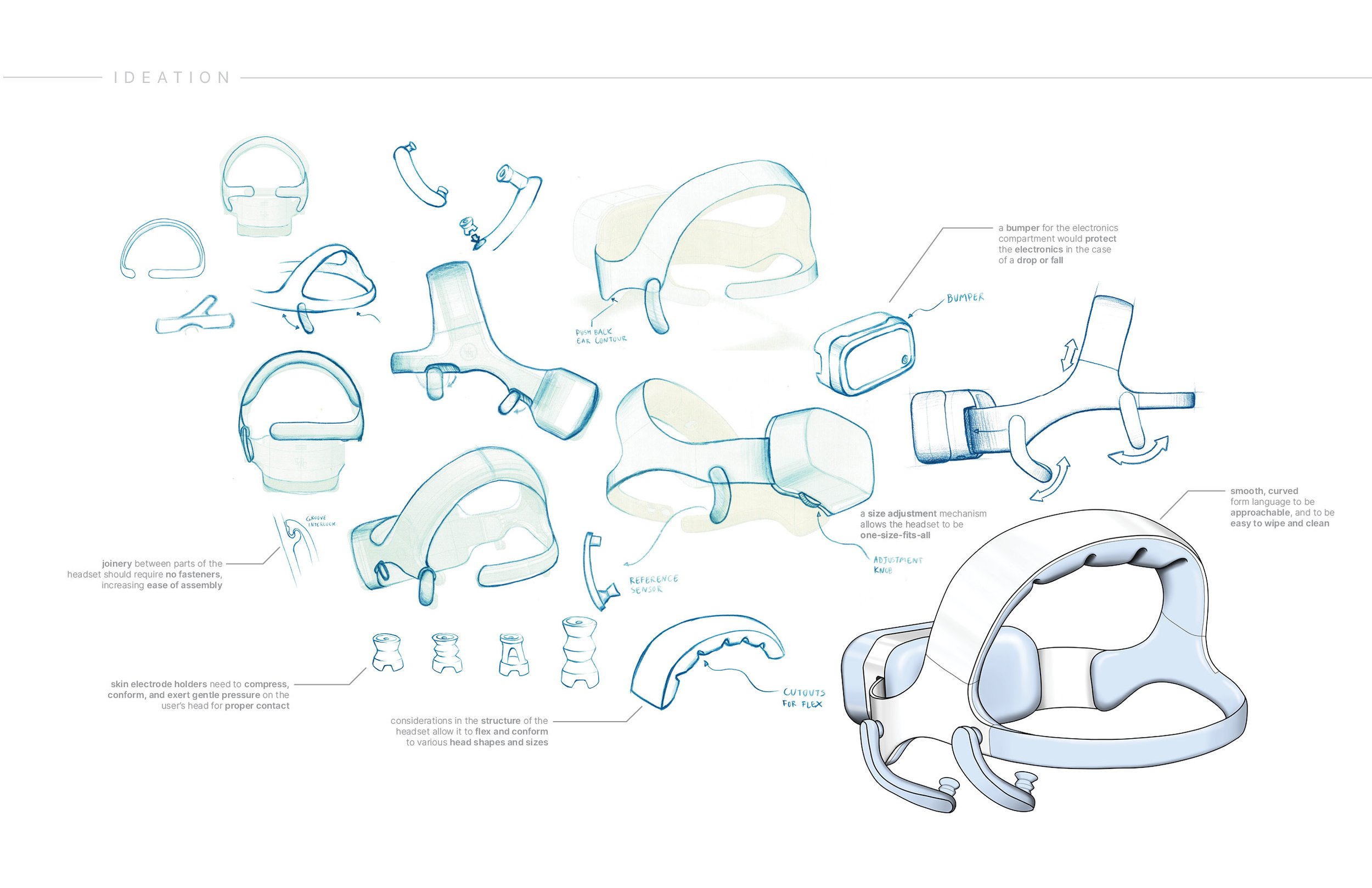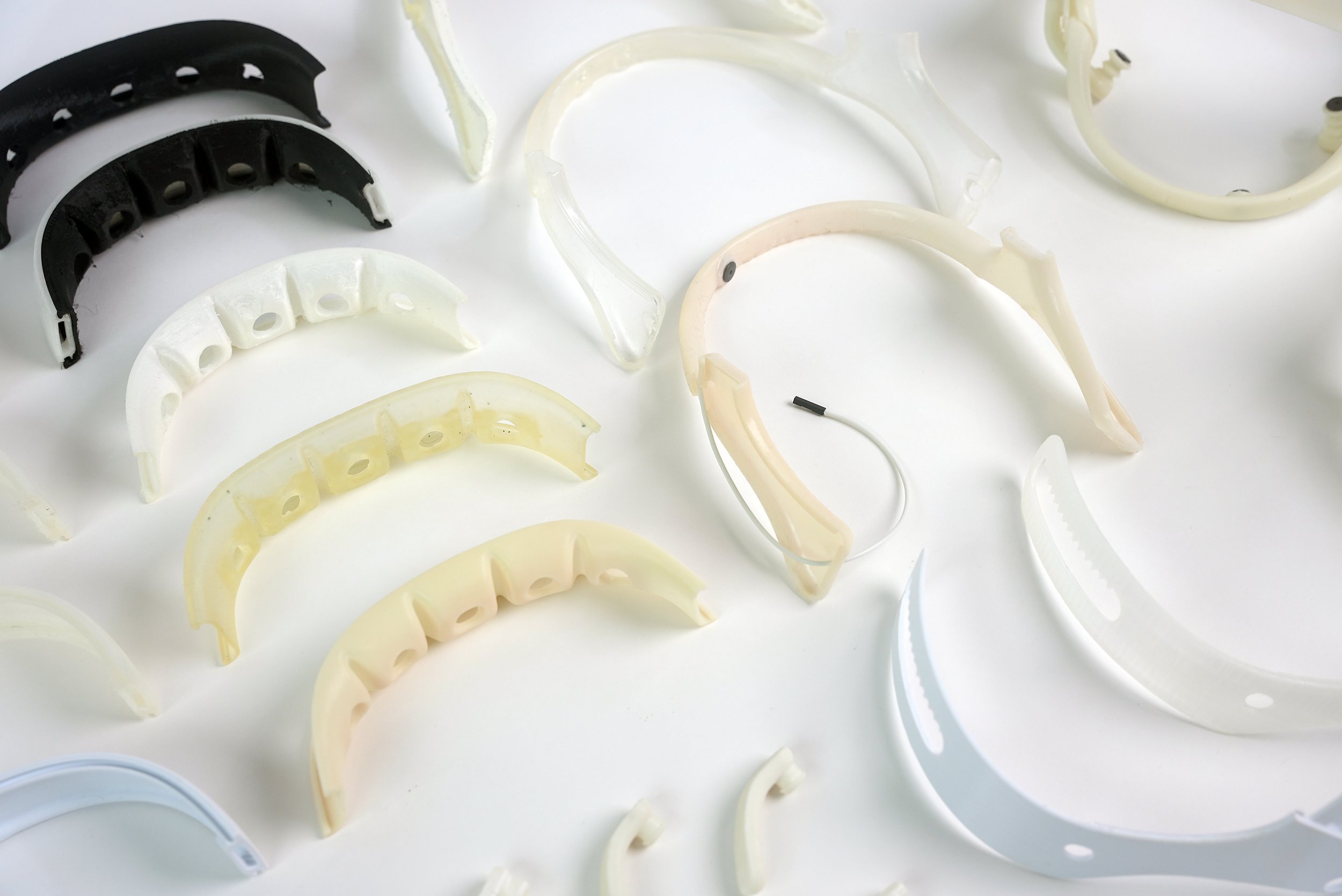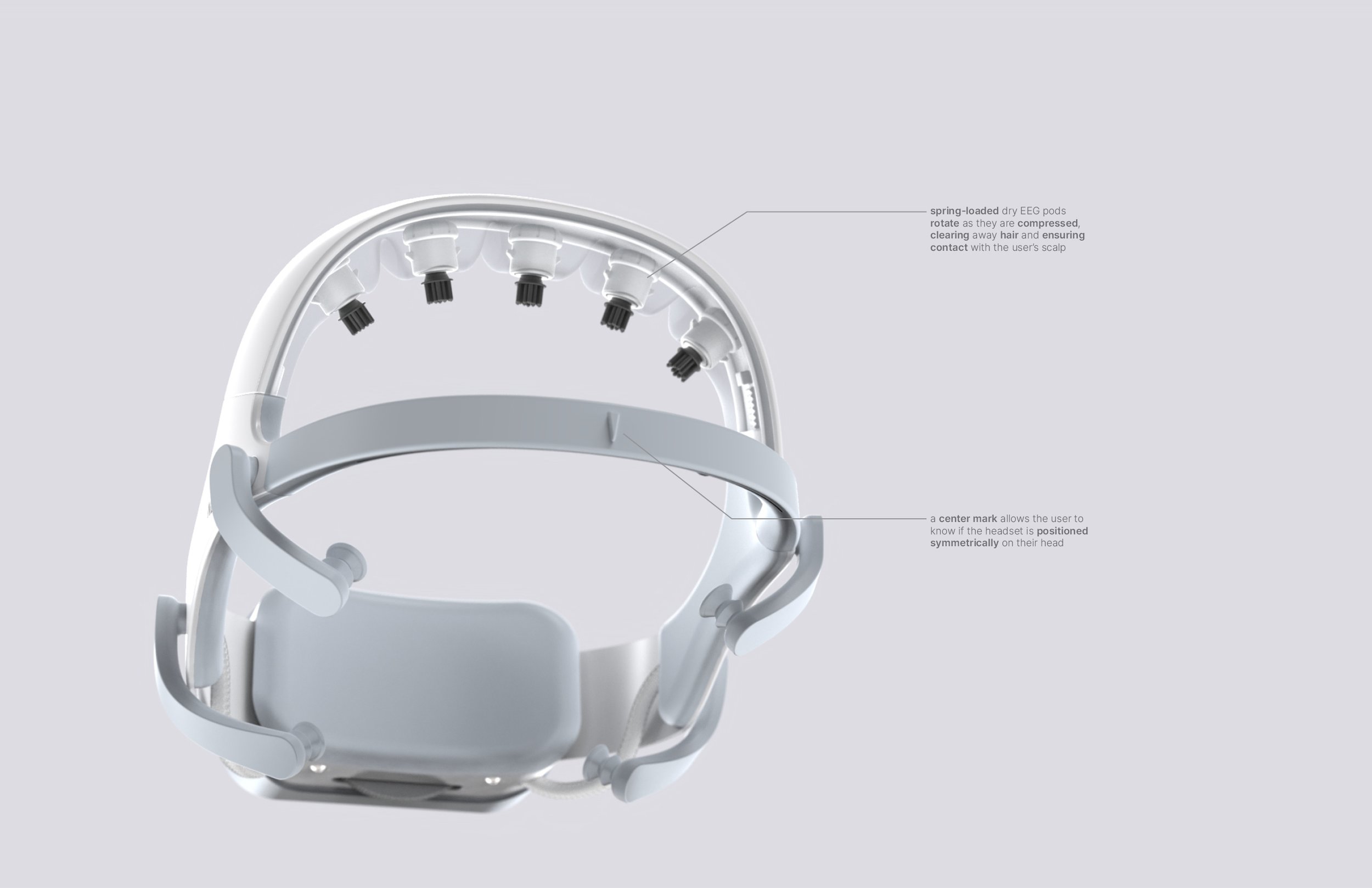
NeuroExo
Stroke Rehabilitation Headset
2021
Disciplines:
Industrial Design, Healthcare, Mechanical Engineering, Electrical Engineering, 3D Visualization
US Patent Application No. 63/364,214
NSF Award #1827769
-
David Edquilang - industrial design, mechanical engineering, prototyping, 3D visualization, animation
Jose Contreras-Vidal - engineering, director
Jeff Feng - industrial design, advisorAlex Craik - electrical engineering
Jose Gonzales Espana - electrical engineering
Ayman Alamir - biomedical engineering
Niell Gorman - industrial design*
Antoinette Louw - industrial design*
*previous versions of the headset
About 800,000 stroke cases occur annually, just in the US alone. Physical impairment afflicts more than half of stroke patients. Due to their impairments, physical therapy can be inaccessible for many stroke patients.
Issue:
A brain computer interface headset that assists stroke patients in their rehabilitation by allowing them to independently perform physical therapy at home.
Design:
A Novel Device
A stroke rehab headset like this is the first of its kind.
To instill confidence in test users, I designed its form to be smooth and approachable.
A plethora of engineering and ergonomic requirements were considered while developing the design.
Prototyping
Dozens of iterations of every part of the headset were prototyped, tested, and refined to optimize assembly and functionality of the headset.
Material chosen to prototype all parts of the headset also had to be biomedical-grade in order to pass FDA approval for clinical trials.
Fit & Function
Extensive testing of headset prototypes allowed me to refine the design and ensure it comfortably fits everyone from the female 5th percentile to the male 95th percentile of head sizes while maintaining good contact of all EEG and EOG electrodes for signal clarity.
Clinical Trials
The headset is currently undergoing clinical trials at TIRR Memorial Hermann.
The headset collects EEG signal data from the user’s brain and communicates via WiFi to a robotic armature to enable physical therapy of the patient’s impaired limb according to their brain’s motor intent.













